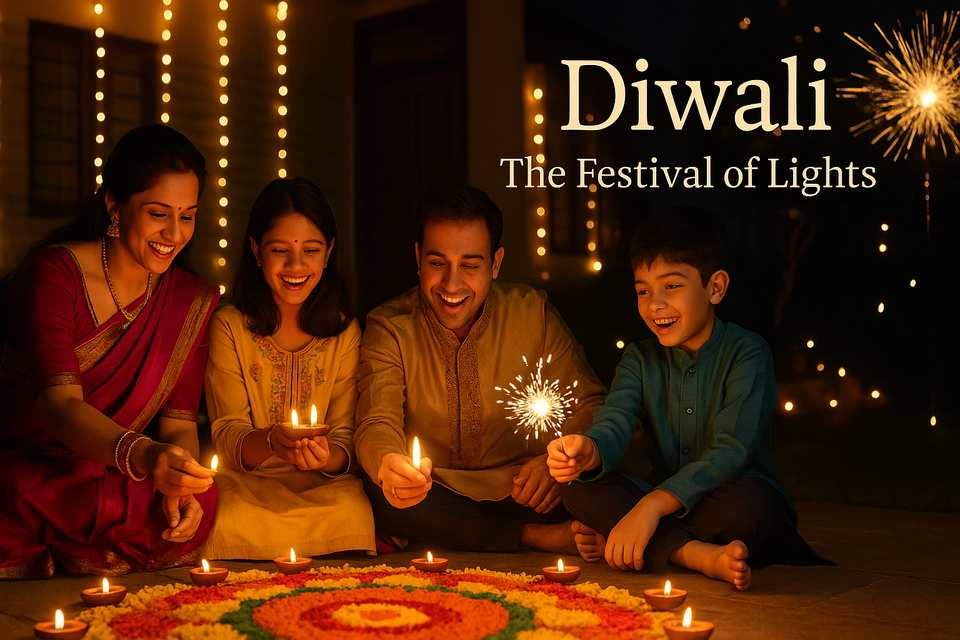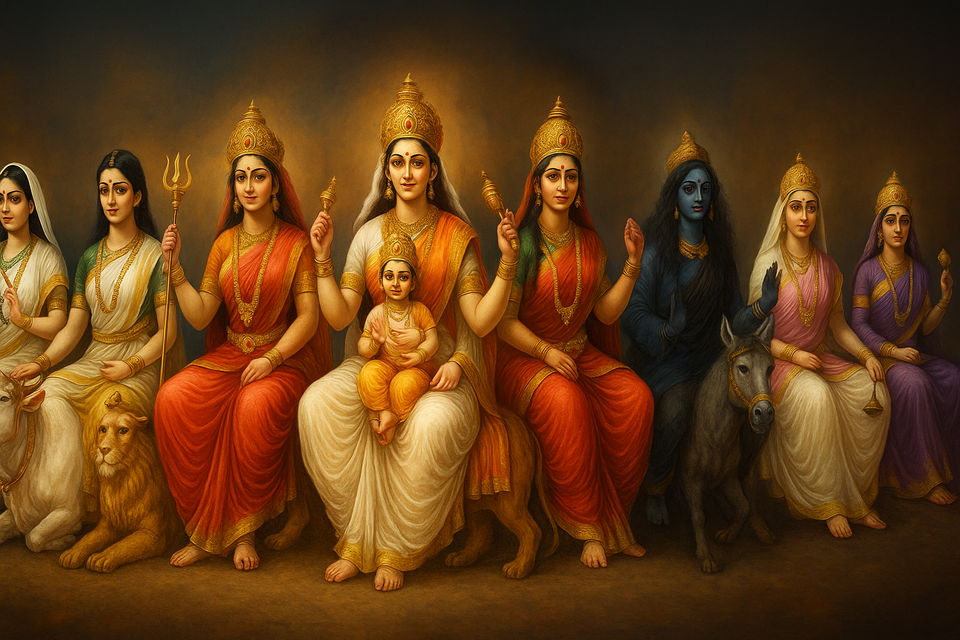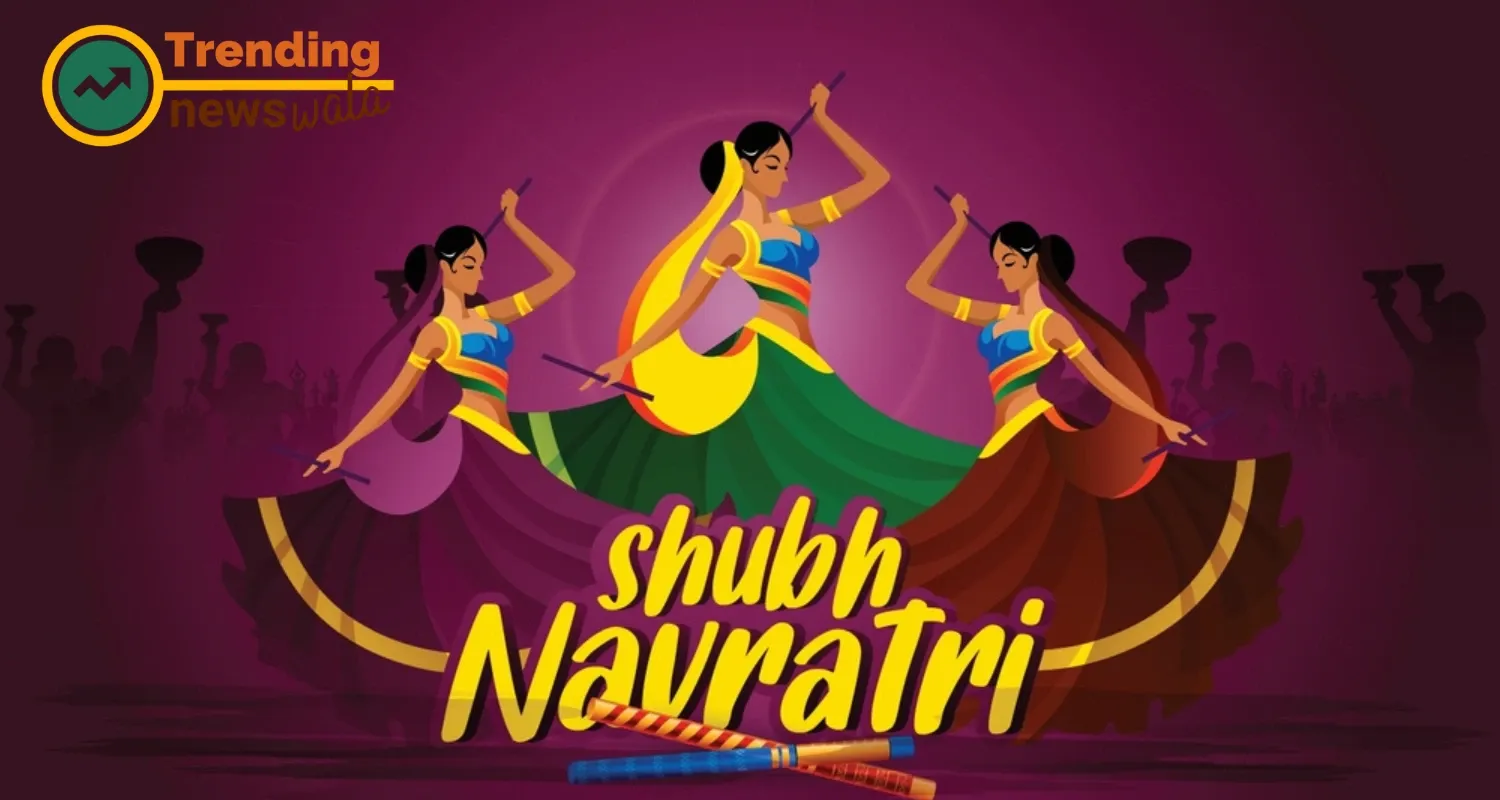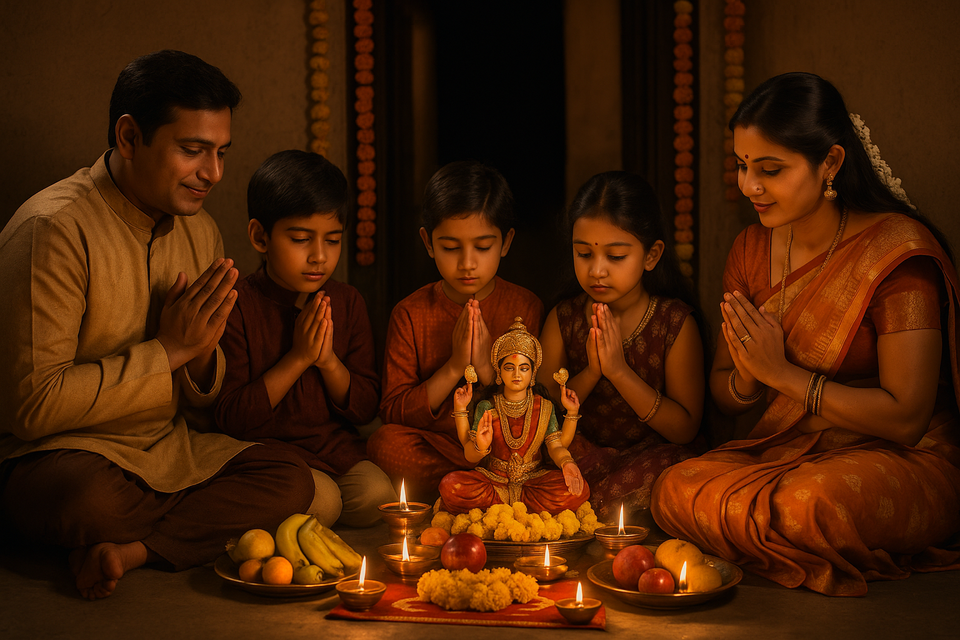Karva Chauth: A Celebration of Love and Devotion 🌙
Celebrate Karva Chauth, a festival of love and devotion! Learn its history, rituals, and modern relevance. Discover how to join the vibrant festivities in India and embrace the spirit of marital bliss. 🎉
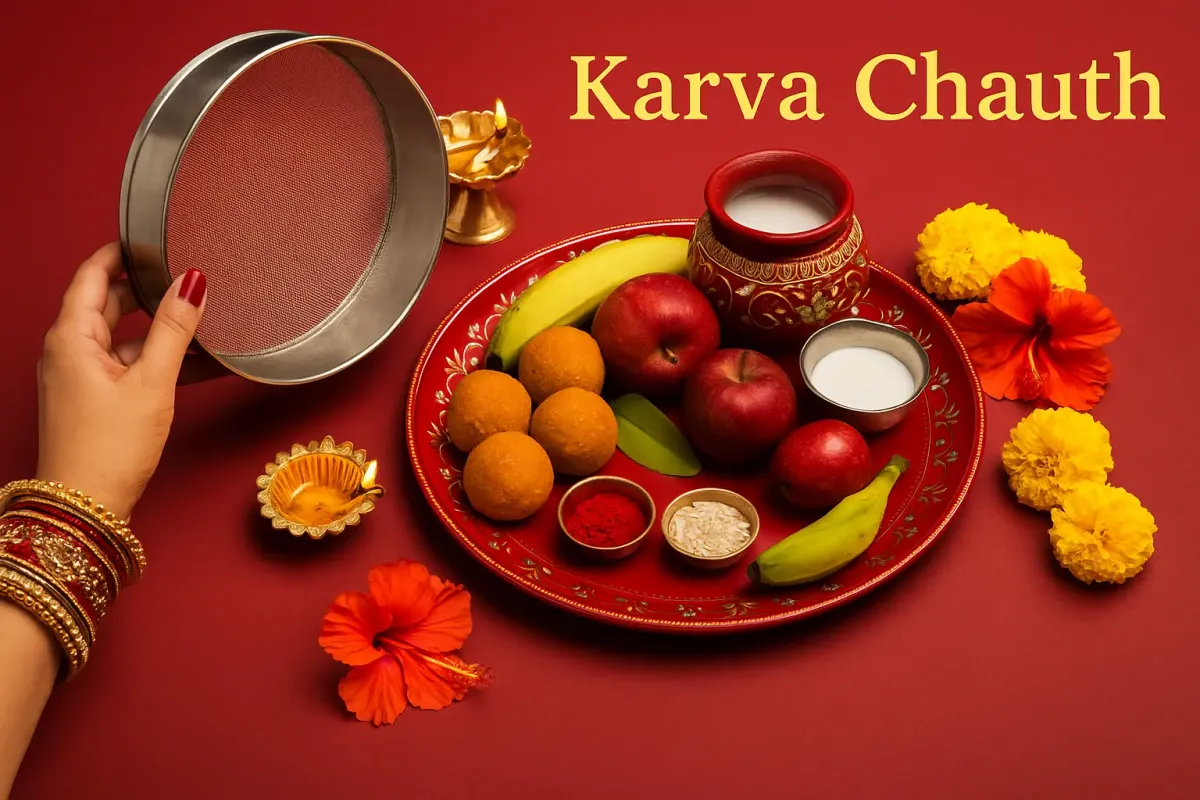
Karva Chauth, a cherished Hindu festival, is a heartfelt celebration of love, devotion, and marital bliss, observed predominantly by married women in North India. Celebrated on the fourth day after the full moon in the Kartik month of the Hindu lunar calendar, Karva Chauth involves a day-long fast (nirjala vrat) undertaken by wives for the long life and prosperity of their husbands. Known for its iconic rituals, such as gazing at the moon through a sieve and exchanging karvas (earthen pots), Karva Chauth is a vibrant expression of commitment and tradition. This 2000+ word guide explores the history, significance, rituals, celebrations, and modern relevance of Karva Chauth, offering a comprehensive, SEO-optimized, and user-friendly resource.
For a deeper understanding of India’s rich festival traditions, explore Ancient Festivals of India.
Historical Background of Karva Chauth 📜
The origins of Karva Chauth are steeped in ancient Indian traditions, with references found in Hindu scriptures and folklore. While exact historical records are scarce, the festival is believed to have emerged during the Vedic period, when women prayed for their husbands’ safety, especially during times of war or long journeys. The term “Karva Chauth” derives from “karva” (an earthen pot used in rituals) and “chauth” (fourth day), indicating its timing in the lunar calendar.
One popular legend links Karva Chauth to the story of Queen Veeravati, a devoted wife who fasted rigorously for her husband’s life. Mistakenly breaking her fast due to her brothers’ deception, she caused her husband’s death, but her prayers to Goddess Parvati revived him. This tale, narrated as the Karva Chauth Katha, underscores the festival’s emphasis on devotion and divine intervention.
Another historical context ties Karva Chauth to agricultural communities in North India, where women prayed for a bountiful harvest and their husbands’ well-being during the sowing season. Over centuries, Karva Chauth has evolved into a cultural cornerstone, particularly in states like Punjab, Haryana, Rajasthan, Uttar Pradesh, and Delhi, symbolizing marital love and sacrifice. 🕉️
Mythological and Spiritual Significance of Karva Chauth 🌟
Karva Chauth holds profound spiritual and mythological significance, embodying themes of love, sacrifice, and divine blessings. Here are key aspects of its importance:
- Devotion to Spousal Bond: Karva Chauth celebrates the sacred marital bond, with women fasting to pray for their husbands’ longevity and prosperity, reflecting selflessness and commitment.
- Worship of Goddess Parvati: As the epitome of marital devotion, Goddess Parvati is central to Karva Chauth rituals. Devotees seek her blessings for a harmonious marriage, inspired by her union with Lord Shiva.
- Lunar Connection: The moon, worshipped during Karva Chauth, symbolizes longevity and stability. Women break their fast after sighting the moon, reinforcing its spiritual significance.
- Role of Lord Ganesha: Lord Ganesha, the remover of obstacles, is also worshipped during Karva Chauth, ensuring the success of the fast and fulfillment of prayers.
- Spiritual Purification: The nirjala vrat (fast without water) purifies the body and mind, fostering discipline and spiritual growth during Karva Chauth.
The festival’s spiritual essence lies in its celebration of love as a divine force, with rituals designed to strengthen marital bonds and invoke divine grace. Karva Chauth inspires devotees to nurture relationships with faith and dedication. 🪔
For insights into India’s sacred sites, visit Shiva Temples In India.
Cultural Importance of Karva Chauth 🎭
Karva Chauth is a cultural milestone that celebrates India’s heritage of love, family, and community. Its cultural significance includes:
- Strengthening Marital Bonds: Karva Chauth fosters intimacy and trust between spouses, with husbands reciprocating their wives’ devotion through gifts and support.
- Empowering Women: The festival provides a platform for women to gather, share stories, and celebrate their roles as partners, reinforcing sisterhood and empowerment.
- Artistic Expression: Rituals like applying mehndi (henna), creating rangoli, and singing folk songs showcase India’s artistic traditions during Karva Chauth.
- Economic Impact: The festival drives demand for jewelry, traditional attire, cosmetics, and puja items, supporting local artisans and businesses.
- Community Unity: Karva Chauth brings families and neighbors together through group rituals, feasts, and celebrations, fostering social harmony.
The festival’s cultural vibrancy is evident in its colorful rituals and communal spirit, making Karva Chauth a cherished part of India’s festive tapestry. 🌈
Rituals and Traditions of Karva Chauth 🛕
Karva Chauth is marked by a series of rituals that blend spirituality, devotion, and festivity. These traditions create a sacred and joyful atmosphere, uniting women in a shared celebration. Here’s a detailed look at the key rituals of Karva Chauth:
1. Sargi: The Pre-Dawn Meal 🍲
The day begins with sargi, a pre-dawn meal prepared by the mother-in-law for the fasting daughter-in-law. This meal, consumed before sunrise, includes nutritious foods like parathas, sweets, fruits, and dry fruits to sustain energy during the nirjala vrat. The sargi symbolizes familial love and support for Karva Chauth.
2. Nirjala Vrat (Waterless Fast) 🌞
The hallmark of Karva Chauth is the nirjala vrat, a rigorous fast where women abstain from food and water from sunrise to moonrise. This fast, undertaken for the husband’s long life, reflects dedication and sacrifice. Devotees maintain a positive mindset, engaging in prayers and household activities.
3. Puja and Karva Chauth Katha 🙏
In the evening, women gather for the Karva Chauth puja, performed at an auspicious time (muhurat). The altar is decorated with idols of Goddess Parvati, Lord Shiva, Lord Ganesha, and Lord Kartikeya. Women offer:
- Sweets: Ladoos or halwa.
- Fruits: Bananas or pomegranates.
- Flowers: Marigolds or roses.
The Karva Chauth Katha, narrating the story of Veeravati or other legends, is recited, followed by passing decorated karvas in a circle. Mantras like Om Namah Shivaya are chanted to invoke divine blessings.
4. Applying Mehndi and Dressing Up 💄
Women adorn themselves with traditional attire, such as sarees or lehengas in vibrant colors like red or green, symbolizing love and prosperity. Applying intricate mehndi designs on hands and feet is a beloved ritual, believed to enhance marital bliss. Jewelry and cosmetics complete the festive look for Karva Chauth.
5. Moon Sighting and Breaking the Fast 🌙
The fast concludes after sighting the moon, typically in the evening. Women view the moon through a sieve (channi), then look at their husband through the same sieve, symbolizing his long life. The husband offers water and food (often sweets) to break the fast, reinforcing mutual love. This poignant ritual is the emotional climax of Karva Chauth.
6. Rangoli and Home Decoration 🎨
Homes are cleaned and decorated with rangoli designs at the entrance, symbolizing a welcome for prosperity. Lamps (diyas) are lit, and doorways are adorned with mango leaves, creating a festive ambiance for Karva Chauth.
7. Gift Exchange 🎁
Husbands express gratitude by gifting their wives jewelry, clothes, or cosmetics, while women may gift their husbands tokens of love. The mother-in-law often presents baya, a basket of sweets and gifts, strengthening family ties during Karva Chauth.
These rituals make Karva Chauth a vibrant celebration of love, devotion, and cultural heritage. 🎊
Celebrations Across India and Beyond 🌍
Karva Chauth is celebrated with fervor in North India, particularly in Punjab, Haryana, Rajasthan, Uttar Pradesh, and Delhi, though its popularity has spread nationwide and globally. Here’s how different regions mark the festival:
- Punjab: Amritsar and Ludhiana host vibrant Karva Chauth celebrations, with markets buzzing with mehndi artists, jewelry, and puja items. Community pujas and cultural programs are common.
- Haryana: In Chandigarh and Hisar, women gather in neighborhoods for group pujas, exchanging karvas and singing folk songs like “Sundar Sukh Tera Data”.
- Rajasthan: Jaipur and Jodhpur see elaborate celebrations, with women wearing traditional Rajputi attire and hosting grand pujas at home or temples.
- Uttar Pradesh: Varanasi and Lucknow celebrate Karva Chauth with spiritual fervor, combining puja rituals with visits to Shiva-Parvati temples.
- Delhi: The capital hosts modern celebrations, with malls and salons offering Karva Chauth packages for mehndi and grooming. Community centers organize mass pujas.
- Diaspora Communities: Indian communities in the USA, UK, Canada, and Australia celebrate Karva Chauth with puja gatherings, virtual katha readings, and cultural events, keeping the tradition alive globally.
The festival’s universal appeal fosters cultural harmony, as people from various backgrounds join Karva Chauth celebrations. 🌏
Modern Relevance of Karva Chauth 🌐
In today’s world, Karva Chauth remains a powerful symbol of love and commitment, adapting to modern sensibilities while retaining its traditional charm. Its contemporary significance includes:
- Strengthening Relationships: Karva Chauth encourages couples to reaffirm their bond, with husbands increasingly participating by fasting or supporting their wives, reflecting gender equality.
- Cultural Preservation: The festival keeps traditional practices like mehndi, rangoli, and folk songs alive, with younger generations participating through social media and events.
- Economic Boost: Karva Chauth drives consumer spending on jewelry, fashion, and beauty products, supporting India’s retail sector.
- Mental and Spiritual Benefits: The fast and puja rituals promote mindfulness and discipline, aligning with modern wellness trends.
- Digital Engagement: Social media platforms buzz with Karva Chauth posts, from mehndi designs to moon-sighting photos, allowing global audiences to connect virtually.
Bollywood has popularized Karva Chauth through films like Dilwale Dulhania Le Jayenge, making it a romantic and aspirational festival for younger generations. Businesses leverage Karva Chauth with special offers, enhancing its modern appeal. 📱
How to Celebrate Karva Chauth at Home 🏠
Planning to celebrate Karva Chauth? Here’s a step-by-step guide for a meaningful celebration:
- Prepare for Sargi: Arrange a nutritious pre-dawn meal with parathas, sweets, and fruits. If you’re a mother-in-law, gift a sargi thali to your daughter-in-law.
- Begin the Fast: Start the nirjala vrat at sunrise, staying hydrated before dawn. Maintain a positive mindset with prayers or light activities.
- Set Up the Puja Space: Clean your home and create an altar with idols of Parvati, Shiva, Ganesha, and Kartikeya. Decorate with flowers, rangoli, and diyas.
- Apply Mehndi: Book a mehndi artist or apply henna designs at home, choosing intricate patterns for hands and feet.
- Dress Traditionally: Wear a saree or lehenga in red, green, or gold, accessorized with jewelry and bangles for the festive look.
- Perform the Puja: In the evening, conduct the Karva Chauth puja with the katha recitation. Pass a decorated karva in a circle if celebrating with others.
- Sight the Moon: After moonrise, view the moon through a sieve, then look at your husband. Break the fast with water and sweets offered by him.
- Share Gifts: Exchange gifts with your spouse or receive baya from your mother-in-law, strengthening family bonds.
- Share Greetings: Send Karva Chauth wishes via WhatsApp, Instagram, or cards, with messages like “May your love shine brighter than the moon!”
These steps ensure a heartfelt and authentic Karva Chauth celebration, even at home. 🎈
Practical Information for Visitors 🌍
Planning to experience Karva Chauth in India? Here’s what you need to know:
- Best Places to Visit: Delhi (Chandni Chowk), Amritsar (Golden Temple area), Jaipur (Johari Bazaar), or Varanasi (ghats) for vibrant celebrations.
- Timing: Karva Chauth falls in Kartik (e.g., October 29, 2025). Check the Hindu calendar for exact dates.
- How to Reach:
- By Air: Delhi (Indira Gandhi International Airport), Amritsar (Sri Guru Ram Dass Jee Airport), or Jaipur (Jaipur International Airport) are well-connected.
- By Train: Delhi Junction, Amritsar Junction, and Jaipur Junction are major railway stations.
- By Road: Highways connect these cities with buses and taxis.
- Accommodation: Book hotels or guesthouses in advance, especially in Delhi and Jaipur, due to high demand. Options range from budget stays to luxury hotels like Taj Mahal Hotel (Delhi).
- Etiquette: Dress modestly, respect fasting women, and seek permission before photographing Karva Chauth rituals.
Visiting during Karva Chauth offers a unique glimpse into India’s cultural and romantic vibrancy. 🛫
Conclusion 🌄
Karva Chauth is a radiant celebration of love, devotion, and cultural heritage, uniting couples and communities in a heartfelt tradition. From the nirjala vrat and moon-sighting ritual to the Karva Chauth Katha and mehndi designs, Karva Chauth offers a rich tapestry of rituals that strengthen marital bonds. Its historical, spiritual, and modern significance makes it a cherished festival that inspires commitment, gratitude, and togetherness. Whether you’re a couple celebrating your love or a visitor eager to explore India’s festive spirit, Karva Chauth promises an unforgettable experience. Embrace the magic of Karva Chauth and let love shine under the moonlight! 💖

